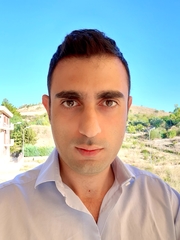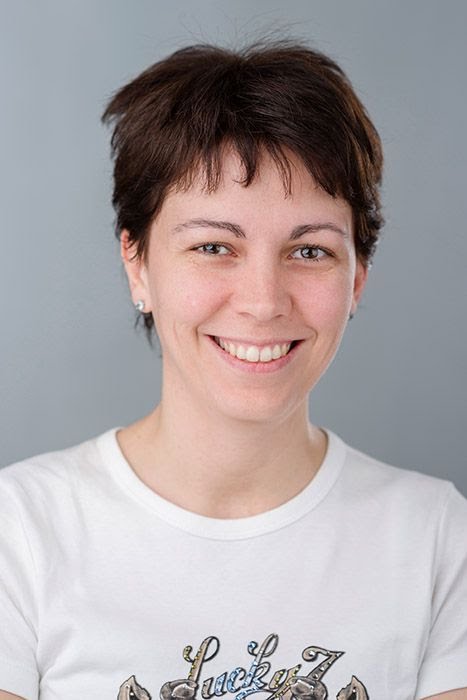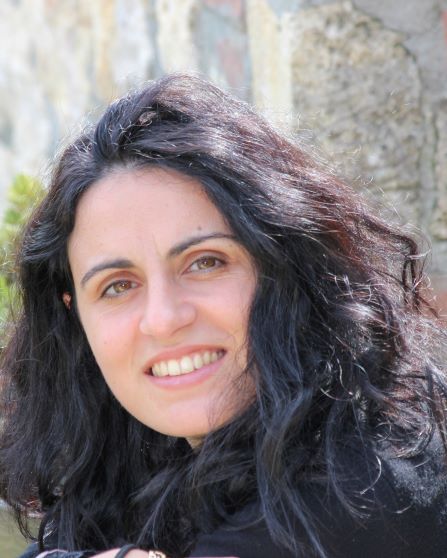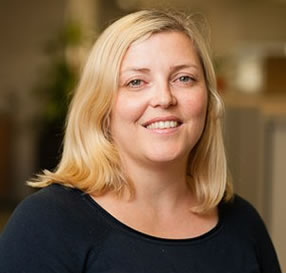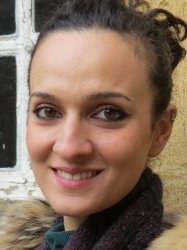Studying at the University of Verona
Here you can find information on the organisational aspects of the Programme, lecture timetables, learning activities and useful contact details for your time at the University, from enrolment to graduation.
Academic calendar
The academic calendar shows the deadlines and scheduled events that are relevant to students, teaching and technical-administrative staff of the University. Public holidays and University closures are also indicated. The academic year normally begins on 1 October each year and ends on 30 September of the following year.
Course calendar
The Academic Calendar sets out the degree programme lecture and exam timetables, as well as the relevant university closure dates..
| Period | From | To |
|---|---|---|
| primo semestre (lauree magistrali) | Oct 4, 2021 | Dec 17, 2021 |
| secondo semestre (lauree magistrali) | Feb 21, 2022 | May 13, 2022 |
| Session | From | To |
|---|---|---|
| sessione invernale | Jan 10, 2022 | Feb 18, 2022 |
| sessione estiva | May 23, 2022 | Jul 8, 2022 |
| sessione autunnale | Aug 22, 2022 | Sep 23, 2022 |
| Session | From | To |
|---|---|---|
| sessione autunnale (validità a.a. 2020/2021) | Dec 6, 2021 | Dec 10, 2021 |
| sessione invernale (validità a.a. 2020/2021) | Apr 6, 2022 | Apr 8, 2022 |
| sessione estiva (validità a.a. 2021/2022) | Sep 5, 2022 | Sep 6, 2022 |
Exam calendar
Exam dates and rounds are managed by the relevant Economics Teaching and Student Services Unit.
To view all the exam sessions available, please use the Exam dashboard on ESSE3.
If you forgot your login details or have problems logging in, please contact the relevant IT HelpDesk, or check the login details recovery web page.
Should you have any doubts or questions, please check the Enrollment FAQs
Academic staff
 maurizio.malpede@univr.it
maurizio.malpede@univr.it
 martina.menon@univr.it
martina.menon@univr.it
Study Plan
The Study Plan includes all modules, teaching and learning activities that each student will need to undertake during their time at the University.
Please select your Study Plan based on your enrollment year.
1° Year
| Modules | Credits | TAF | SSD |
|---|
2° Year activated in the A.Y. 2022/2023
| Modules | Credits | TAF | SSD |
|---|
| Modules | Credits | TAF | SSD |
|---|
| Modules | Credits | TAF | SSD |
|---|
| Modules | Credits | TAF | SSD |
|---|
Legend | Type of training activity (TTA)
TAF (Type of Educational Activity) All courses and activities are classified into different types of educational activities, indicated by a letter.
Project Apprisal (2022/2023)
Teaching code
4S008981
Teacher
Coordinator
Credits
6
Language
English
Scientific Disciplinary Sector (SSD)
SECS-P/02 - ECONOMIC POLICY
Period
Secondo semestre (lauree magistrali) dal Feb 20, 2023 al May 19, 2023.
Learning objectives
The course focuses on the ex-ante and ex-post economic evaluation of projects with major impacts from the societal standpoint, including those for which the information provided by relevant markets is incomplete. The discussion of the theoretical background, mainly based on applied "welfare economics" will be carried on along with the introduction to the techniques typically employed to tackle practical issues in ex-ante and ex-post economic evaluation. Upon completion of the course, students will be able to identify an appropriate evaluation method, based on the characteristics of the project, and to apply the relevant techniques to real world situations. Case studies from a variety of fields will be presented and empirical exercises with real world data will be performed in the computer lab. During the course, students will be given the opportunity to work in group on a specific case study and present it in class.
Prerequisites and basic notions
Students are expected to be able to interpret and solve simple microeconomic models and to have knowledge of fundamental concepts of statistics.
Program
- Financial and economic evaluation in the project life-cycle
- Applied “welfare economics”: evaluation with market imperfections
- From market prices to shadow prices: alternative approaches
- Economic evaluation of non-market goods with a focus on environmental impacts
- Risk assessment
- EU guidelines for cost-benefit analysis of investment projects (available at: http://ec.europa.eu/regional_policy/sources/docgener/studies/pdf/cba_guide.pdf)
- Introduction to software programming for project appraisal
- Case studies
Bibliography
Didactic methods
Teaching will include both lectures and computer lab sessions. Students will be given the opportunity to apply the methods learnt during the course for the solution of real problems.
Learning assessment procedures
Assessment will be based on a written exam (including both theoretical and practical questions). Students are also expected to show ability to apply concepts and methods to real-world situations. Students may opt to base part of their exam on a project work.
Evaluation criteria
The evaluation will take into consideration: the understanding of the contents and methods, the ability to adequately apply the contents to specific situations, the ability to deepen and re-elaborate the contents
Criteria for the composition of the final grade
The evaluation will be based on the result of the written test. For students who choose to work on a project work, the evaluation of this will contribute, with equal weight to the written test, to the determination of the final grade.
Exam language
Inglese
Type D and Type F activities
| years | Modules | TAF | Teacher |
|---|---|---|---|
| 1° 2° | The fashion lab (1 ECTS) | D |
Caterina Fratea
(Coordinator)
|
| 1° 2° | The fashion lab (2 ECTS) | D |
Caterina Fratea
(Coordinator)
|
| 1° 2° | The fashion lab (3 ECTS) | D |
Caterina Fratea
(Coordinator)
|
| years | Modules | TAF | Teacher |
|---|---|---|---|
| 1° 2° | Marketing plan | D |
Virginia Vannucci
(Coordinator)
|
| years | Modules | TAF | Teacher |
|---|---|---|---|
| 1° 2° | Internationalization and Sustainability. Friends or Enemies? | D |
Angelo Zago
(Coordinator)
|
| 1° 2° | Internationalization and Sustainability. Friends or Enemies? | D |
Angelo Zago
(Coordinator)
|
| 1° 2° | Internationalization and Sustainability. Friends or Enemies? | D |
Angelo Zago
(Coordinator)
|
| 1° 2° | Data Analysis Laboratory with R (Verona) | D |
Marco Minozzo
(Coordinator)
|
| 1° 2° | Data Visualization Laboratory | D |
Marco Minozzo
(Coordinator)
|
| 1° 2° | Python Laboratory | D |
Marco Minozzo
(Coordinator)
|
| 1° 2° | Data Science Laboratory with SAP | D |
Marco Minozzo
(Coordinator)
|
| 1° 2° | Advanced Excel Laboratory (Verona) | D |
Marco Minozzo
(Coordinator)
|
| 1° 2° | Excel Laboratory (Verona) | D |
Marco Minozzo
(Coordinator)
|
| 1° 2° | Programming in Matlab | D |
Marco Minozzo
(Coordinator)
|
| 1° 2° | Programming in SAS | D |
Marco Minozzo
(Coordinator)
|
| 1° 2° | Samsung Innovation Camp | D |
Marco Minozzo
(Coordinator)
|
| years | Modules | TAF | Teacher |
|---|---|---|---|
| 1° 2° | Business & Predictive Analytics for International Firms (with Excel Applications) - 2021/2022 | D |
Angelo Zago
(Coordinator)
|
| 1° 2° | What paradigms beyond the pandemic? Individual vs. Society, Private vs. Public | D |
Federico Brunetti
(Coordinator)
|
| 1° 2° | Data Discovery for Business Decisions- 2021/2022 | D |
Claudio Zoli
(Coordinator)
|
| 1° 2° | Elements of Financial Risk Management - 2021/2022 | D |
Claudio Zoli
(Coordinator)
|
| 1° 2° | English for business and economics | F |
Claudio Zoli
|
| 1° 2° | Integrated Financial Planning | D |
Riccardo Stacchezzini
(Coordinator)
|
| 1° 2° | Introduction to Business Plan-2021/2022 | D |
Paolo Roffia
(Coordinator)
|
| years | Modules | TAF | Teacher |
|---|---|---|---|
| 1° 2° | The fashion lab (1 ECTS) | D |
Caterina Fratea
(Coordinator)
|
| 1° 2° | The fashion lab (2 ECTS) | D |
Caterina Fratea
(Coordinator)
|
| 1° 2° | The fashion lab (3 ECTS) | D |
Caterina Fratea
(Coordinator)
|
| years | Modules | TAF | Teacher |
|---|---|---|---|
| 1° 2° | La metodologia SEM applicata allo studio della relazione tra gestione del rischio e performance nelle PMI | D |
Cristina Florio
(Coordinator)
|
| 1° 2° | Laboratory on research methods for business | D |
Cristina Florio
(Coordinator)
|
| 1° 2° | Professional Communication for Economics A.A. 2021-22 | D |
Claudio Zoli
(Coordinator)
|
| years | Modules | TAF | Teacher |
|---|---|---|---|
| 1° 2° | How to Enter in a Foreign Market. Theory and Applications - 2021/2022 | D |
Angelo Zago
(Coordinator)
|
Career prospects
Module/Programme news
News for students
There you will find information, resources and services useful during your time at the University (Student’s exam record, your study plan on ESSE3, Distance Learning courses, university email account, office forms, administrative procedures, etc.). You can log into MyUnivr with your GIA login details: only in this way will you be able to receive notification of all the notices from your teachers and your secretariat via email and soon also via the Univr app.
Graduation
Doppio Titolo
Grazie ad una rete di accordi con Atenei esteri, l’Università di Verona offre percorsi formativi internazionali che consentono l’acquisizione di un doppio titolo di studio. L’ammissione ad un CdS a doppio titolo consente di conseguire contemporaneamente, nel tempo di un normale ciclo di studi (di cui una parte viene svolta all'estero), sia il titolo di studio dell’Università di Verona che il titolo rilasciato dall'Ateneo partner, garantendo di vedere riconosciuto il diploma di laurea in entrambi i Paesi.
L'accesso al doppio titolo (così come l’eventuale sostegno finanziario) è regolato da uno specifico bando, e il numero di posti è limitato.
 045 802 8224
045 802 8224

